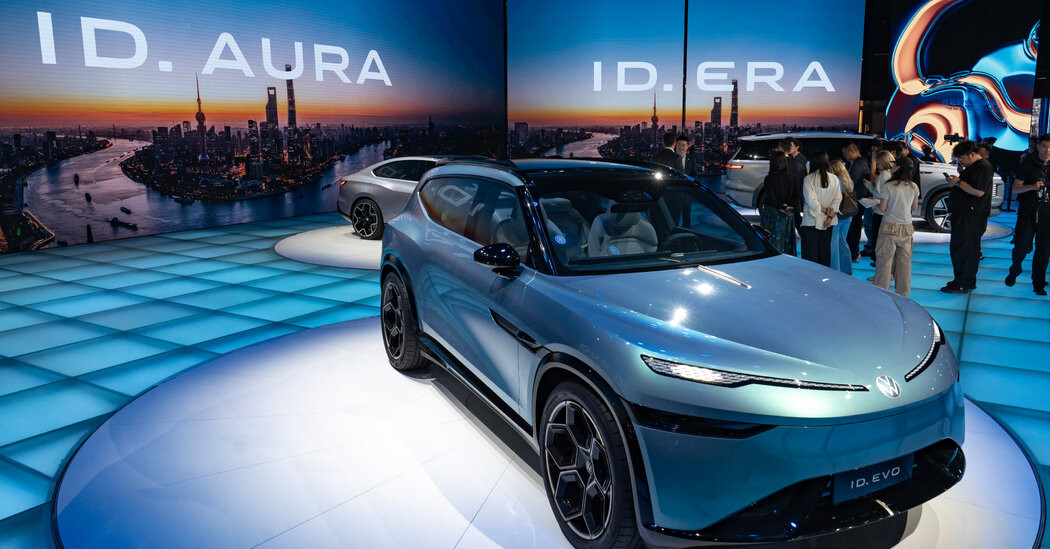

European companies operating in China say the market has become increasingly challenging because of weak economic demand and opaque government rules on business.
European companies, many of which have operated in China for decades, are finding it increasingly difficult to do business in the country, another sign of how China’s weak domestic economy and opaque regulations are testing even longstanding multinational business ties.
European automakers have been rapidly losing market share and face many political difficulties. Volkswagen agreed last December to sell its factory in northwestern China’s Xinjiang region, where Beijing has repressed Muslim ethnic groups. European pharmaceutical and medical imaging equipment companies have found themselves locked out of much of the state-run health system.
An extensive annual survey of businesses released on Wednesday by the European Chamber of Commerce in China found that nearly three-quarters said it was getting harder to operate in China. It was the fourth consecutive year that the survey showed deepening corporate pessimism.
The proportion of European companies that plan to expand their operations in China has also fallen to a record low, with just 38 percent saying that they intend to do so this year. European investment has been important in bringing Western technology to China and in bringing Chinese products to world markets.
The chamber, which has been gauging challenges companies face in China for a quarter century, represents the interests of some 1,700 companies, from industrial giants like VW to small businesses with a handful of employees who are cogs in global supply chains.
The chamber’s survey also unearthed a somewhat contradictory trend that could prove troublesome for President Trump’s attempt to shield American manufacturing from China’s exports with tariffs. Even as European businesses curb their own investments in China, some are also buying ever more components from Chinese companies. That makes their supply chains even more dependent on China.



